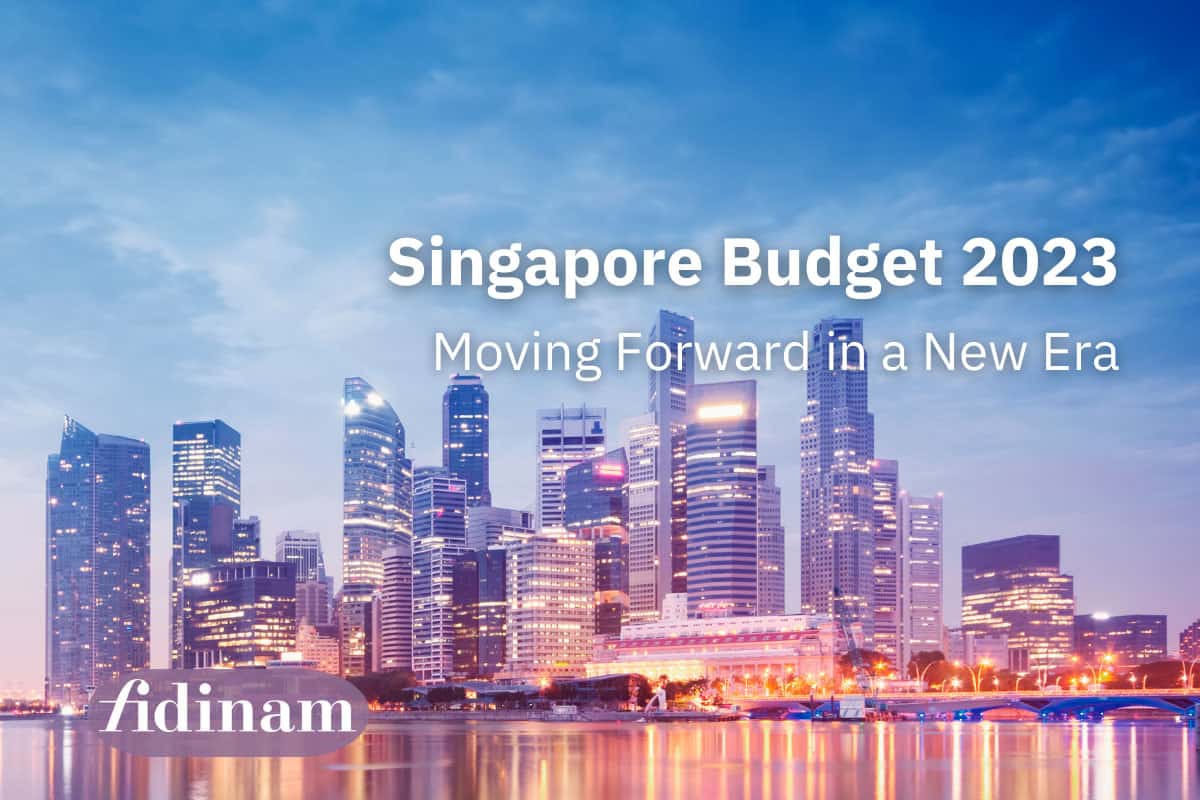
On 14 February 2023, the Minister for Finance, Mr. Lawrence Wong, delivered the Singapore Budget 2023 statement.
The statement is primarily focused on developing capabilities and seizing new opportunities in a modern age of global development, including aid for families and continued support for the more vulnerable groups to cope with the increasing cost of living.
The Singaporean Government anticipates a positive yet slower economic growth of 0.5% to 2.5% for this year, based on current indications of global conditions. However, the forecast is subject to significant uncertainties and downside risks, including:
Therefore, in a new era where disruptions will likely happen more frequently and the world is characterized by greater uncertainties and volatility, Budget 2023 aims to build a more resilient Singapore throughout its measures.
By enhancing the permanent GST Voucher (GSTV) scheme, the majority of lower-income households and retirees will not be affected by the increase in the GST rate.
The GST system in Singapore combines both the GST and GSTV. As a result, wealthier consumers, foreigners, and tourists will bear a greater effective GST rate than lower-income Singaporeans.
This ensures that individuals with greater financial means contribute a proportionate amount of taxes, which effectively decreases the tax burden on lower- and middle-income Singaporeans.
As a global trading hub with strengths in transportation and logistics, it enables Singapore to attract more MNEs to anchor their regional, or even their global operations and headquarters. Moreover, with the increasing competition of global investment, there is support for a wide range of measures for productivity enhancement, and continuing education and training.
The government aims to redouble the efforts to attract high-quality investments by focusing on growth sectors where the Lion City can be highly competitive (finance, trading, manufacturing).
With more high-value activities and best-in-class facilities based here, Singapore will be able to build new capabilities, develop key industries, and create good jobs for Singaporeans.
Besides anchoring investments and deepening capabilities, the government will also nurture and sustain pervasive innovation across the economy. They have also been mobilizing investments in SMEs through Heliconia Capital, which deploys equity financing to SMEs and catalyzes additional growth capital from the private sector.
As part of the “Forward Singapore” exercise, the government is studying several policy moves to further strengthen their SkillsFuture ecosystem and to enhance support for displaced workers, and improve pathways to better jobs.
To encourage businesses to engage in R&D, innovation and capability development activities, the following suite of tax measures will be enhanced or introduced under the Entrepreneurship Innovation Scheme (EIS):
a) Annual tax deductions/allowances of 400%, each capped at SG$400,000 of qualifying expenditure, for:
b) Annual tax deductions of 400%, capped at $50,000 of qualifying expenditure, for:
The government plans to invest significant resources to strengthen the social impact in three key areas, as the economy grows and workers are equipped. These areas include:
In addition to offering broad-based assistance to families, the government will prioritize providing extra support to lower-income families to help them achieve stability, self-reliance, and social mobility.
At the other end of the demographic spectrum, Singapore is one of the world’s fastest-aging nations. By 2030, one in four Singaporeans will be aged 65 and above, up from one in six today. While people are living longer, some spend their final years in poor health. This, coupled with smaller household sizes, will mean an increased burden of care for families.
Over a period of five years, the government will align Platform Workers and Companies' CPF contribution rates with those of employees and employers. Platform Workers below 30 years old at the time of implementation will be required to make increased CPF contributions. Platform Companies will be required to pay CPF contributions for these Platform Workers.
CPF adjustments will also be made for older workers, in line with the recommendations of the Tripartite Workgroup on Older Workers. On Jan 1, 2024, contribution rates will be changed in the following way:
Meanwhile, the government will increase the CPF Housing Grant to provide more support for first time homebuyers purchasing resale HDB flats.
For eligible First-Timer families, the grant amount will be increased:
A key strategy of the Singapore Budget 2023 is to develop robust organizational capabilities to respond swiftly and efficiently during crises.
For example, drawing lessons from the SARS outbreak, the government set up the National Public Health Laboratory and the National Centre for Infectious Diseases, which proved instrumental in treating, managing and fighting the Covid-19 pandemic.
Another important aspect of resilience is in the economy and supply chains. The government has been diversifying import sources, stockpiling food and essential items, and where possible, building up local production through initiatives as the “30 by 30” plan. This plan aims to produce 30% of Singapore’s nutritional needs locally by 2030. Climate-related spending is expected to increase substantially in the medium term, and more resources will be allocated to progressively implement these extensive infrastructure plans.
Additionally, the government is continuously reviewing and updating policies to reinforce social cohesion and resilience. This is done through facilitating tax-deductible donations to Institutions of a Public Character (IPC) and eligible institutions, while also encouraging corporate giving.
The government will keep the overall system of taxes and benefits fair and progressive. They will make further adjustments to the tax system through adjusting Buyer’s Stamp Duty (BSD) regime, introducing higher Buyer Stamp Duty rates for higher-value residential and non-residential properties.
Besides, they expect an overall slight deficit of $0.4 billion, or 0.1% of GDP for financial year 2023.
For residential properties, a new marginal BSD rate of:
And for non-residential properties, a new marginal BSD rate of:
Want to learn more about Singapore Budget 2023 and how it may affect you or your business? Contact us via the form below or email info@fidinamgw.com.
All content © . All Rights Reserved.